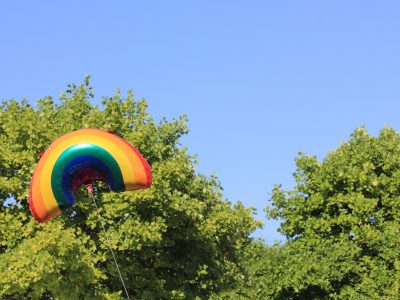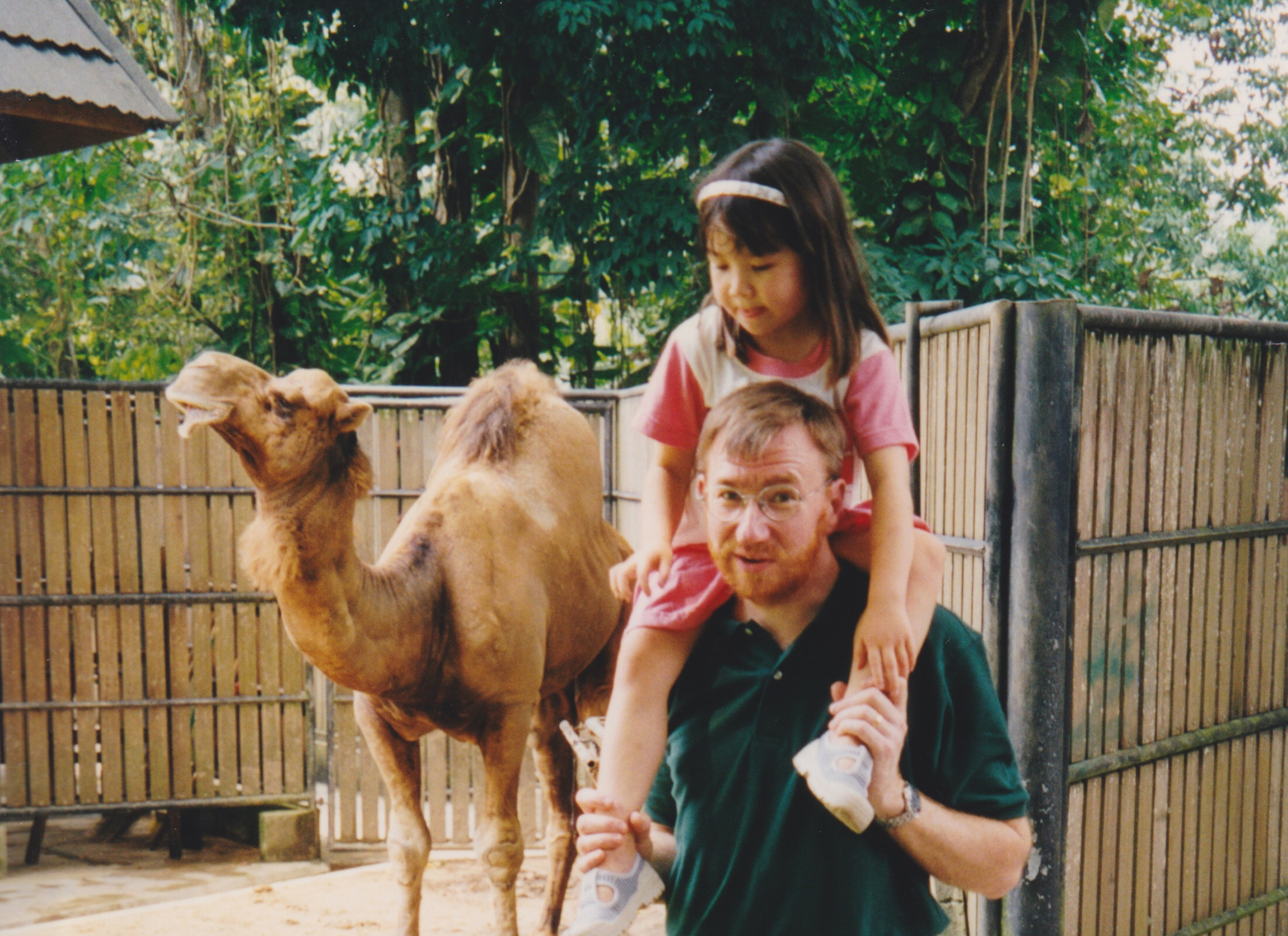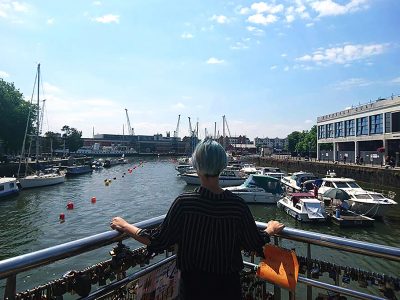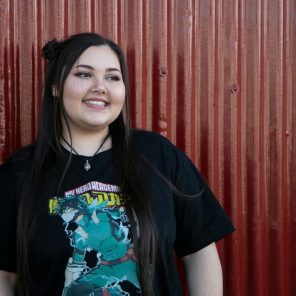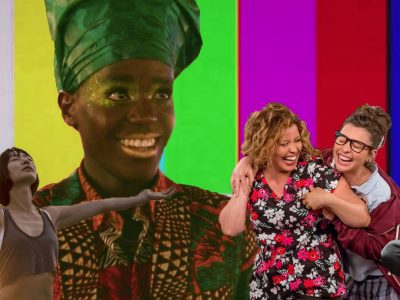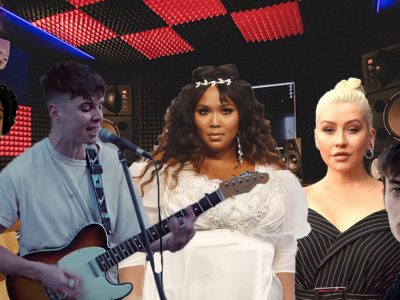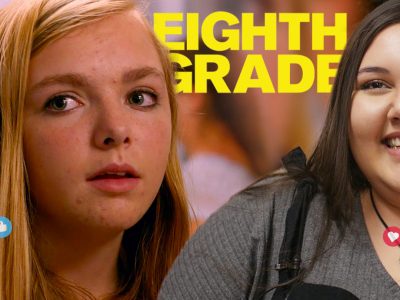Feeling miscellaneous: a reflection on being mixed-race and bisexual
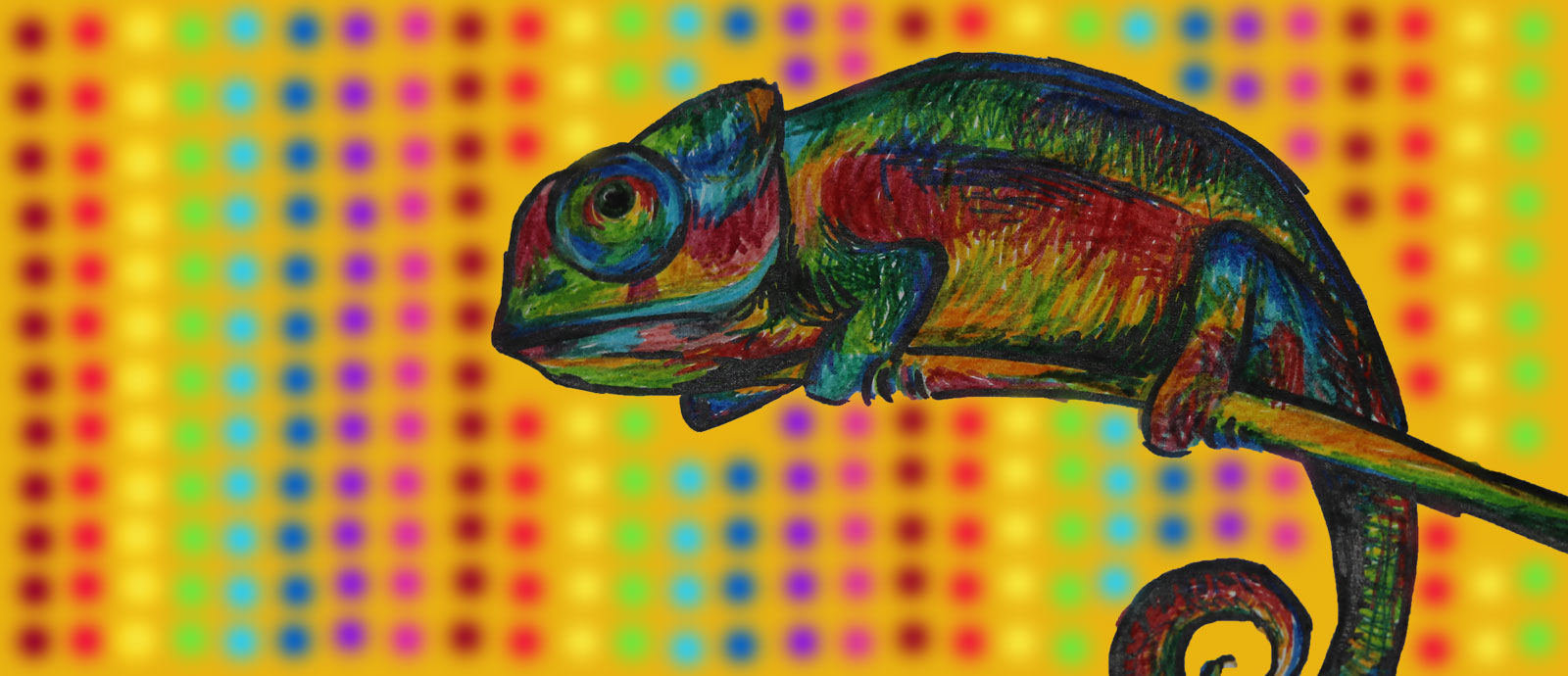
Sumaya attempts to navigate her way through her feelings of not belonging
Being mixed race is weird. Weird, confusing and conflicting. Sometimes I feel like a chameleon that’s adapted to so many colours so many times that I’m not sure what my true colours are. Everyone discusses imposter syndrome when they talk about their careers, but I often feel this way in relation to my identity. I feel guilty a lot of the time – as if I’m appropriating my own culture when I fully embrace my heritage, and ashamed when I don’t. There’s a pressure to ‘pick a side.’ Am I allowed to feel disheartened that half of me is often erased by the paleness of my skin? Or should I be grateful to be painted a lighter shade, by a brush that doesn’t as immediately etch ‘terrorist’ into my skin – like it does to the darker members of my family? Do I owe it to my brown kin to ignore how this dissociation from my culture makes me feel, because admittedly, the lighter colour of my skin is met with more privilege?
Sometimes I feel like a chameleon that’s adapted to so many colours so many times that I’m not sure what my true colours are.
That’s not to say there haven’t been moments. I’ve been discriminated against and rejected by both ends of the spectrum I’m torn between. Not white enough for some of the white people in my life, and not Asian enough for some of the Asian people – I’m miscellaneous. I often find myself longing for an undeniable place in a community, and to wholeheartedly feel that one side of me doesn’t make anyone uncomfortable – but some people are only able to connect with and fully accept one half of me, and it’s the half that resonates with them.
My mum is of the South/Middle East Asian diaspora. Although her parents were born in India, both my Naani and Naana’s (grandmother and grandfather’s) roots go back to Pakistan, India and Persia. My father’s side of the family is white English and Scottish. A while ago I quizzed my mum on how her and my dad’s sides of the family felt about an interracial marriage. She explained that her family had no objections regarding the colour of my father’s skin. What was important, however, was that he was Muslim. Having converted to Islam a year before meeting my mum, he ticked this box. The criterion was a bit more demanding (and racist) on my father’s side though. My grandmother was very vocal in her disapproval of the union, expressing that she was disgusted by the idea of having ‘half breed’ grandchildren. Needless to say, I’m not in contact with my dad’s side of the family. It’s interesting to observe how the Hassan-Murphy grandkids were treated in comparison to my full white, two-year-old brother (half-bro on my dad’s side but of course full broski in my mind and heart). The same woman who considers my other brothers and I’s blood to be muddied now constantly plasters her affection for my baby brother on Facebook, unashamed to claim her ‘pure breed’ grandchild.
The same woman who considers my other brothers and I’s blood to be muddied now constantly plasters her affection for my baby brother on Facebook, unashamed to claim her ‘pure breed’ grandchild.
I remember discussing my heritage with someone who asked, ‘Wouldn’t it be great if we got to a point where everyone was mixed? There wouldn’t be a place for racism then!’ I feel that comment was born from a rather ignorant perspective. Most unfortunately, there would still be room for racism. It blooms like poison ivy on your family tree, like it has on mine, and becomes internalised. While the Asian side of my family have never said anything hurtful about me being part white, I notice it’s something they dislike to acknowledge. I also think they likely accuse my whiteness for some of my opinions that don’t align with theirs. A divide between my immediate family and its extended members is definitely felt – and I don’t think it’d be the wildest thing to say my siblings and I’s ethnicities contribute to this. There’s undoubtedly a culture clash, but it’s difficult to tell how much it’s cultural, generational, or both.
My mum raised my brothers and I on her own (big ups to the purest, most selfless, strongest mumma ever – you are an absolute warrior). With the absence of my father and his side of the family, I grew up immersed solely in the Asian side of my culture. Though I feel a deep connection to this part of me, that doesn’t always necessarily translate on the outside – something which has been a double-edged sword over the years in addition to my name. I’m not sure how white-passing I am to others, but my name, ‘Sumaya,’ has always made sure I am identifiably ethnic and has often served as ammunition for bullies. I think for some of my ‘pals’ though, the fact that my name isn’t English didn’t quite click, or maybe they had no issue with being unapologetically, outright racist. Once, I was in a in a Humanities lesson (the irony), and someone who I thought was a close friend was complaining about the ‘fucking Paki scum ruining our country’ who could ‘all go die.’ At this point, another ‘buddy’ was trying to warn her in whispers, pointing at me with her eyes. The girl just shrugged it off, saying ‘not you though, you don’t count.’ I don’t know if I didn’t count because she liked me enough for me to be an exempt from her venomous words, or if she was deleting the part of me that she deemed so worthless, it was invalid all together – overwritten by the white side of me that she considered superior to the brown. As much as this girl would like to define who I am or dictate what hurts me, comments like that are applicable to me. They apply to me, my family, and I have every right to be personally offended and disgusted if you choose to wish ill on another human being in such a way. But, like I said – double-edged sword. As much as my name is indicative of a non-English background to white people, it does the same for people of colour. It becomes a relatable topic of conversation, a safe space to discuss our cultures and joke about the wackiest pronunciation our names have been victim to.
I think for some of my ‘pals’ though, the fact that my name isn’t English didn’t quite click, or maybe they had no issue with being unapologetically, outright racist.
As well as being mixed race, I’m bisexual. All that means to me is: if I connect with a person, I connect with a person. Whether you’re female, male, trans or non-binary, I’m more concerned with what’s in going on in your mind, heart and soul than your undies. It’s been a long, turbulent and ongoing journey coming to terms with my sexuality. There have been times that I’ve desperately wanted to be either fully straight or gay – for everything to just make more sense, and not be in some grey area that’s often overlooked, misunderstood and stigmatized among both the LGBTQ+ and heterosexual communities. I’ve noticed many parallels between my mixed heritage and my sexuality in terms of how it’s been received. As with my ethnicity, I’ve often been urged to favour one end of the spectrum. Whether or not you have a preference and choose to express it – cool. What’s not cool though, is that third parties will often use this against you in attempt to invalidate your sexual orientation and reinforce the negative misconceptions surrounding it. You’d be told that if you’re a woman more attracted to guys, you’re actually really just straight, or experimenting for attention, or you’re selfish and promiscuous. If you’re a gal more attracted to women, you’re obviously just a lesbian who hasn’t accepted it yet. Within the LGBTQ+ community especially, bisexuals are often assumed to be unfaithful, because we’re expected to leave who we’re with for someone of the opposite gender. I’m hoping that those who think this will come to realise that shitty behaviour isn’t innate within any group of people – anyone can cheat and there’s simply no correlation between infidelity and sexuality.
I’ve noticed many parallels between my mixed heritage and my sexuality in terms of how it’s been received.
Whilst I personally find myself more comfortable with women and seem to allow myself to be more in tune with my attraction to them, I feel it would be inauthentic to discount the fact I have an undeniable attraction to dudes too. I’m only now beginning to truly feel it’s okay for my definition of bisexuality to be whatever the heck it happens to be, and to trust that I know myself and my mind better than all these other people who are trying to tell me what I’m not or what I am. Though it gets me feeling a sort of way, I’ve come to tolerate and accept how some of my straight gal friends’ behaviour can change once I’ve discussed my sexuality transparently – certain comments they’ll make or a shift in comfort around me. What I don’t think I was ready for was receiving it from the LGBTQ+ community too. It seems the most counterproductive and illogical to not reciprocate in the respect and compassion you’d like to receive regarding your queerness. You instead have terms like ‘gold star lesbian’ (a lesbian that’s never slept with a guy) a part of the community’s vocabulary. Not only is it not okay to determine someone’s worth by their sexual experiences, but what does this speak to regarding the opinion of bisexuals? We’re slowly but surely making progress, but there’s still a ways to go.
I’m only now beginning to truly feel it’s okay for my definition of bisexuality to be whatever the heck it happens to be.
Despite these feelings of not belonging and all the conflict that’s inside me, I don’t believe I’d change these aspects of myself for anything. Whilst it’s easy to slip into the mentality of ‘I don’t know who I am and I have no place in which I definitely belong,’ I’m trying my best to shift towards and maintain a more positive, healthier perspective. I’m trying to tell myself that although it’s sometimes hard to feel and believe, I am a recipient of acceptance and love – even if the people that offer them to me feel so segregated. I truly feel being mixed-race and bisexual has fuelled both my empathy and understanding of the world. With all the bigotry, hatred and racism circulating the Earth, it’s nice to remember that I came to be from a place of love. A moment where differences weren’t brushed under the rug or tolerated, but accepted and celebrated. As much as my bisexuality may be misunderstood, I’m proud of my capacity to love and to have an open mind and heart. I’m working hard to remember that in spite of some of the bad encounters and experiences I’ve had, I’m at a place in my life where I’m surrounded by some of the most accepting, compassionate and loving people to have blessed my life. I would like to thank all of them for allowing me to have numerous places to call home.
Let us know your feelings on Sumaya’s essay. Do you think it matters? Let us know on Twitter, Facebook or in the comments.

